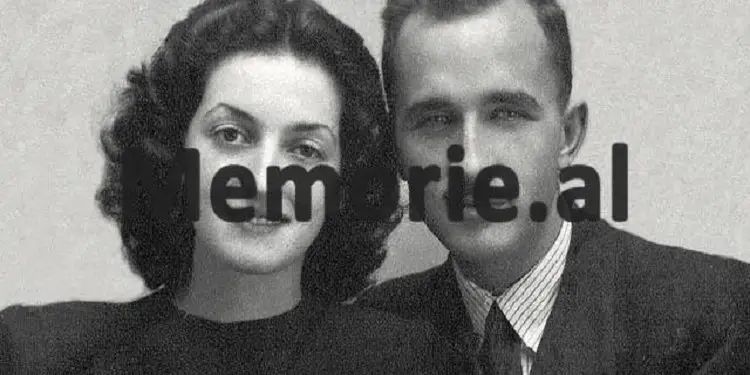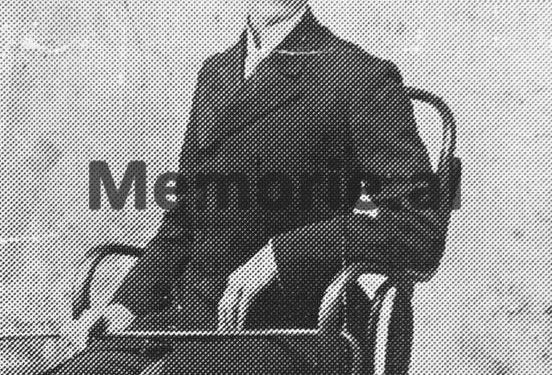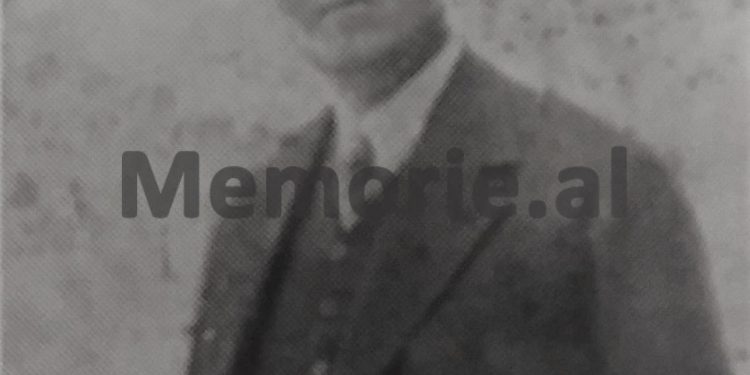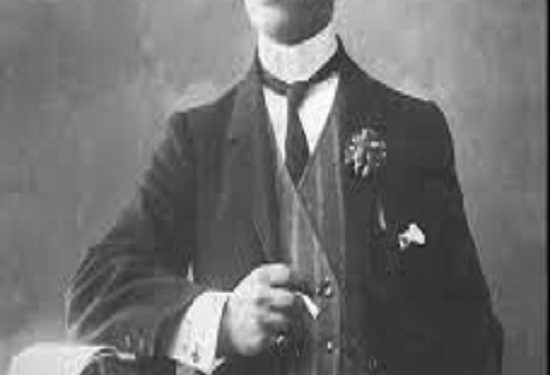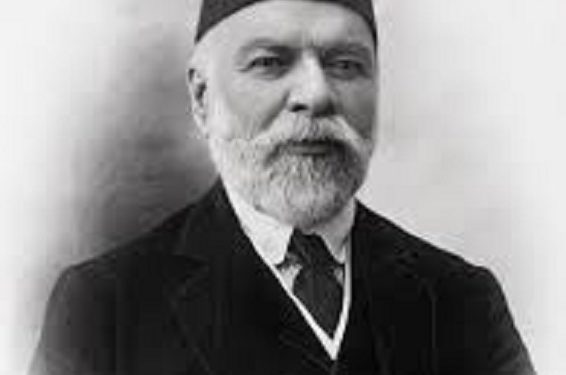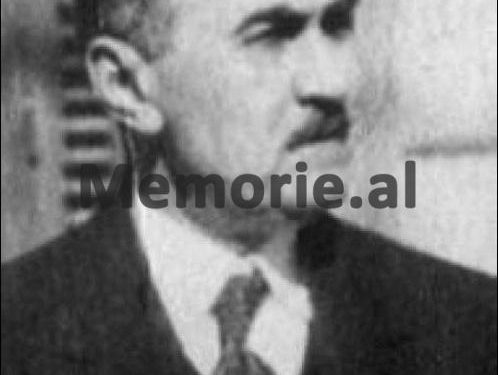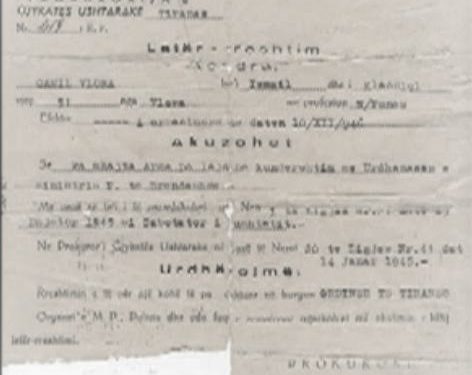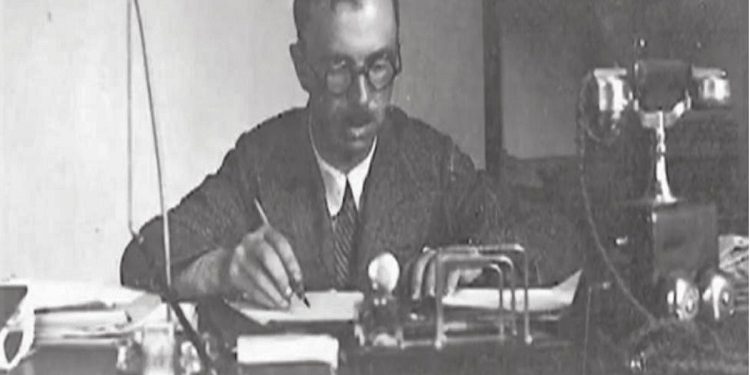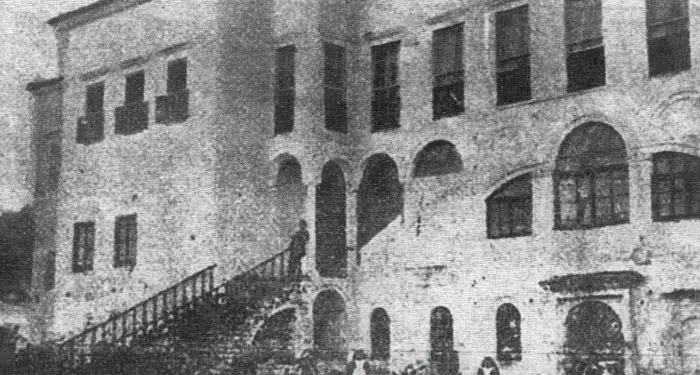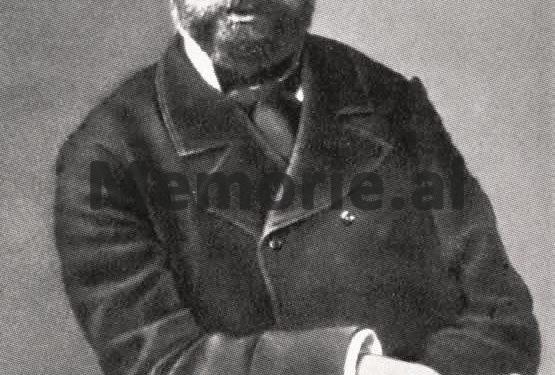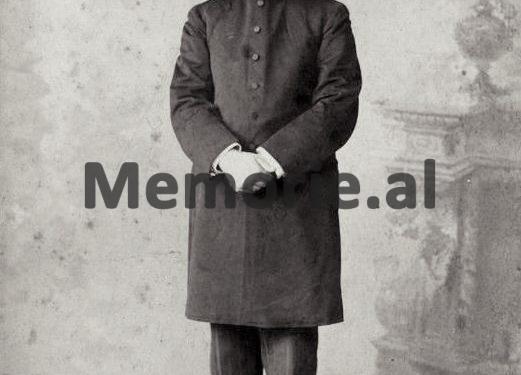Dashnor Kaloçi
Second part
Memorie.al/ publishes the unknown story of Ismail Qemali’s sons, from the period of the Zog Monarchy, when they were appointed to high official positions and honored with medals, decorations and special pensions. From the communist regime of Enver Hoxha, when Qamil Vlora, was imprisoned since 1947, being accused of illegal possession of weapons, while his family, until the end of the communist regime, was persecuted, denigrated and ignored, not being never invited to the anniversaries of the declaration of Independence. Rare testimony of Mrs. Esma Hurshiti Vlora, granddaughter of Javer bej Hurshiti, (former signatory of Independence in November 1912, senior official of the Zog Monarchy, prefect and mayor of Gjirokastra, MP, minister, prefect of Shkodra, Senator in the High Council of State, etc.), which tells the whole sad story of the family of her father-in-law, Qamil Vlora, (the youngest son of Ismail bey Qemali), under the communist regime of Enver Hoxha!
“At the beginning of 1945, my father-in-law, Qamil Vlora, was sought by Mehmet Shehu, who told him that he had called him to talk and get some opinions, like the son of Ismail Qemal Vlora who was. After talking for a long time, Qamil said to Mehmeti: ‘If you will know my opinion, I am telling you that many Albanians were killed with each other, so do not bleed anymore, do not kill anymore’. As Qamili himself told us when he returned home, Mehmet Shehu had called him to turn to the side of the communists, seducing him with many promises. “After the top leaders of the communist state failed to make Qamil their own, they decided to arrest and sentence him to prison.”
This is how Mrs. Esma Hurshiti Vlora (wife of Ismail Qamil Vlora, nephew of Ismail Qemali, the old man of Vlora who raised the flag and declared the independence of Albania, on November 28, 1912), remembered the meeting of Ismail Qemali’s son, among others in 1945, with Mehmet Shehu, who also showed us the unknown side of the Vlora family, during the years of the communist regime, where her father-in-law Qamili, the youngest son of Ismail Qemali, ended up in the camps and prisons of the dictatorship and the family of it was denigrated and trampled on until the late 1980s.
Although all Albanians wherever they have been, since 1912, when the old man of Vlora raised the red and black flag on the balcony of his house, have bowed respectfully, every November 28 to commemorate him, few have been who knew that, after November 28, 1944, when the communists came to power, the two sons of Ismail Qemal Vlora were still living in Tirana. Likewise, although the communist state organized large ceremonies to commemorate Flag Day, the sons and grandsons of the old man of Vlora who were still alive were never spoken about and a deep silence was maintained, erasing them from the history of Albania. , part of which, they had been fortunate to be, being their father’s closest collaborators.
Continued from the previous issue
Testimony of Esma Hurshti Vlora, wife of Ismail Qemali’s nephew!
At the beginning of February 1945, Mehmet Shehu called for a meeting in his office, Qamil Vlora, the son of Ismail Qemali, who was the only son of the Elder of Vlora who lived at that time and was in Albania. , as the others had passed away during the period of the Zog Monarchy, while it was his brother, Qazimi, who had left Albania, settling in the city of Struga, where he passed away a short time later.
Regarding Qamil Vlora’s meeting with Major General Mehmet Shehu, Esma Hurshiti Vlora recalled: “At the time when Qamil was called to a meeting by Mehmet Shehu, my father, Mehmet Hurshiti, together with his father Javerin, were arrested and had not yet appeared in the Special Court, where the grandfather would be sentenced to death and shot, while the father would be sentenced to long years in prison.As Qamili later told us, Mehmet Shehu told him that he had called him for After talking to each other for a long time, Qamil had told Mehmet Shehu that if he wanted to know his opinion, those communists should stop the bloodshed, by stopping executions with and without trial, because many Albanians had been killed with each other.
By doing so, Qamili wanted to show Mehmet Shehu that he was against the sentencing of Javer Hurshit and the large group of former politicians and senior officials of previous governments who had been arrested and expected to be shot. As Qamili himself told us then, Mehmet Shehu had called him to measure his pulse and return it to the communists, to use his name as Ismail Qemali’s son and to seduce him; he had made some promises to him Qamilit.
“But after Mehmet Shehu and some high-ranking officials of the communist state of that time, whom we met later, failed to make Qamil their own, they decided to arrest him”, recalled Esma Hurshiti (Vlora), the meeting of her father-in-law Qamil Vlora, with Major General Mehmet Shehu, one of the top leaders of the new communist regime in power, who wanted to use for their political interests, the figure of Ismail Qemali’s son that the family of Ismail Qemali’s son would have her as an opponent, he changed her surname, making her from Vlora, to Ismaili, in order to eliminate any connection between the name of the great patriot and his descendants.
Arrest and sentence of two years in prison, of Qamil Vlora!
After the top leaders of Enver Hoxha’s communist regime failed to achieve their goal, they decided to arrest Qamil Vlora. The reasons for his arrest were clear, and the pretext for sentencing him was one of the most banal: illegal possession of a weapon. Qamil Vlora never had a revolver with ivory handles and washed all with gold, which he had the most precious memory of his father, Ismail Qemali. Although Qamil kept it a secret, as he knew his position and relations with the communist state, it was revealed by the State Security.
Thus, from the beginning of 1947, the State Security made his arrest, when Qamili was working as a worker, in a state printing house. Regarding this, Esma Hurshiti Vlora, recalled: “For the arrest of Qamil, we as a family did not report at all, we learned that after his two sons, Ismali and Xhevdet became interested. After being held for some time in the investigator, Qamil was sentenced to two years in prison, charged with unlawful possession of a firearm, with a revolver that his father remembered. Began to serve his sentence, which Qamil did in Tirana prison, where he was sent to work in Lapraka, where he was a silkworm breeding station, and during that time, from the humidity, he became seriously ill and became tuberculosis.
After Qamil’s sentence, our family remained in a very bad economic situation, as there was no income. My husband, Ismaili, was out of work at the time, as no one approached him, even though he had studied Medicine for two years at the University of Vienna. Ismaili tried to find some manual labor, in order to earn some income, going from time to time to the villages of Tirana. “From the difficult economic situation in which the Vlora family found themselves, they started selling furniture and household items to make a living”, recalled Esma Hurshiti, at the time when the communist regime sentenced Ismail Qemali’s son to two years in prison, under the absurd pretext and banal, that he was carrying an illegal weapon, which he had in memory of his father, the former first president of the Albanian state, who had declared the independence of Albania in 1912.
Although there is no evidence from Qamil Vlora’s family and descendants to shed light on and directly or indirectly implicate Enver Hoxha personally in the sentencing of Ismail Qemali’s son, it is difficult to accept that this was done without his permission or knowledge. The hard work in which Qamil Vlora was assigned to work during his two years in prison, made him seriously ill with tuberculosis and he was hospitalized in the Sanatorium of Tirana. In this regard, Esmaja recalled: “At the time when Qamili was suffering from a serious disease of tuberculosis in a hospital in Tirana (sanatorium annex), my husband, Ismaili, was performing compulsory military service in the district of Korça.
Feeling that his health was deteriorating day by day, Qamili made some prayers to the government, to bring his son Ismail, serving in Tirana, so that he could meet him someday. But even after the many letters he made, not only did they not fulfill his request to bring Ismail to Tirana, but they never responded “. Meanwhile, the health condition of Qamil Vlora after tuberculosis began to worsen even more, when he saw how his family was treated by the communist regime in power. Although in this dire situation, he tried to give courage to the family.Thus, in a letter he sent to his eldest son, Ismail, on February 9, 1950, among other things, Qamili wrote to him: “My dear Ismaili, all my life I have tried for you two my sons, to be satisfied and happy, and not to understand the moral and material misery of this life. (Qamili makes subtle allusions to the critical condition of the communist regime).
I believe that to some extent and although I do not have wealth, I raised you with caresses and if not better, equal to your friends, more favored perhaps in such situations. Now that I am old and unfortunately I have a disease that has no mercy, I am no longer able to try, but only to wish and pray that you are happy. But by this letter, I mean that you are mature enough to age, to understand that the world is not a field of happiness and that people are not how we idealize them, but are driven by their passions. Thus, knowing this fact, we must be strengthened to face the situations and events that fate reserved for us… “, Qamili concluded his letter.
Six people at the funeral of Ismail Qemali’s son
Qamil Vlora died in deep misery, on December 15, 1950, after two years of treatment in the annex of the Tirana Sanatorium, completely forgotten by the communist state of that time. Regarding Qamil’s death, Esma Vlora, the wife of his son Ismail, recalled: “At the time my father-in-law, Qamil, my husband, Ismail, had just been discharged from the army, he had died. Our family’s economic situation had deteriorated considerably, because the state saw us as their political opponents and attacked us in camouflaged, milder ways, as in a way it wanted to preserve the figure of Ismail Qemali.
But even though he tried to keep this label, the communist state’s attitude towards our family seemed open. Thus, at Qamil’s funeral, no one dared to come, but we of the family buried him, me, my husband, Ismail, his brother, Xhevdet and their mother together with two neighbors who helped us. After Qamil’s death, our family added even more problems, because every time there was displacement and internment in Tirana, we were all afraid that they would deport us as well, removing us from Tirana. “Fortunately, this did not happen, not because they loved us, but because the communist regime, as I said, was trying to somehow preserve the label of Ismail Qemali’s family,” Esma Hurshiti recalled at the time, when she died in great misery her father-in-law, Qamil Vlora and was buried only by family members.
Ismail Qemali the young, turner and baker!
Even after the death of Qamil Vlora, towards his family, the communist regime in power did not change its attitude at all, but on the contrary, it continued the persecution and reckless behavior towards it. Regarding this, Esma Hurshiti Vlora recalled: “At that time, we left the house we had in Moskatet to Xhevdet, Ismail’s brother, after he got married and had children. We went and took refuge with my sister, in a house near the Ministry of Education (then the Soviet embassy), which was too narrow for us and we were forced to live in a narrow corridor.
Ismaili could not stand the attitude of the communist state towards our family and his dissatisfaction, he always expressed openly with us and sometimes with his friends. Seeing the miserable situation where we lived, Ismaili, very revolted, went to the People’s Assembly and told those who received him at the meeting, that; in case they did not give him an apartment to live in, he would take his wife with all the small children, and leave them in front of the People’s Assembly building, so that the whole of Tirana could see how the family of his son was treated. Ismail Qemali, being left homeless in the middle of four streets.
“After that, apparently they got scared and knowing Ismail’s temperament well, they gave us this house (an apartment near Willson Square), where we still live today”, Esmaja concludes her story, regarding the treatment that the communist regime of Enver Hoxha, made to the family of the Elder of Vlora.Although the communist state forced him to give a small apartment to the young Ismail Qemali, he was never taken care of, to help him work, at least as a medical assistant, with whom he had graduated two years at the Faculty of Medicine in Vienna.
Although Ismaili was able to arrange some work as an accountant for some time, he was immediately removed from that position and ended up as a three-shift turner at the Enver plant. Even at that plant he was treated very badly, leaving him to always work on older lathes, where he could never meet the norm and barely received half his salary. After many years in that job, Ismaili left and hardly arranged to work as a worker in the Bread Factory, where he retired in 1980. The same fate, if not worse, had Esmaja, Ismail’s wife, who was not even allowed to work as a cleaner at the “Petro Nini Luarasi” school, but was immediately fired from there, as soon as they found out about her biography.
According to the testimonies of Esma Hurshiti Vlora, the thing that aggravated the young Ismail Qemali, while he was alive, was the disregard that the highest leaders of the communist state had for the Vlora family, who were never invited to official holidays and ceremonies. Which were organized in Vlora and Tirana, on the occasion of November 28, Flag Day? Very indignant about this, Ismaili tried all year to save some money and when the end of November came, he took his family, going by train to Vlora, to place a bunch of flowers near the grave of his grandfather, Ismail bej Qemali . Memorie.al




